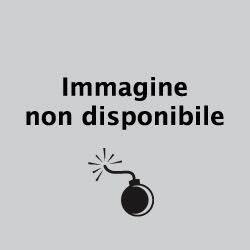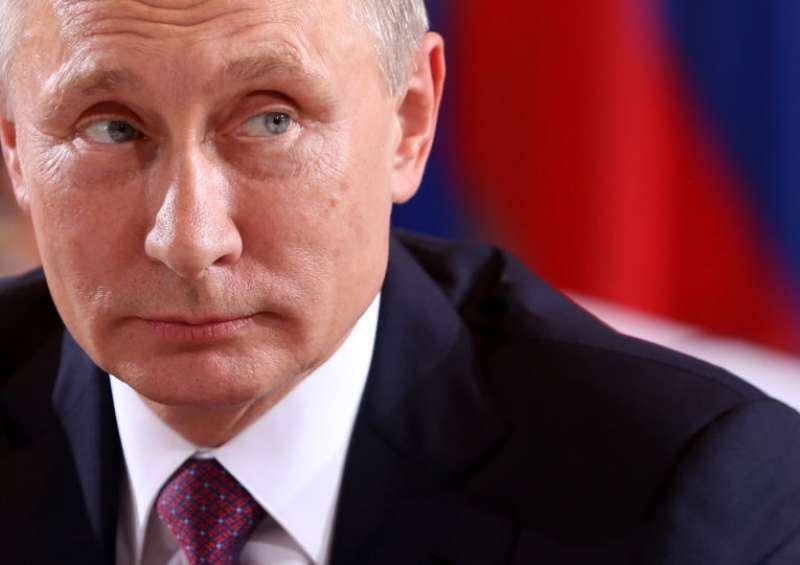Ma che guastafeste questo Biden: chiama alle armi, alla soluzione radicale, o Putin o noi, perfino il buon dio che pure è infinitamente paziente non lo sopporta più al Cremlino, con un nemico mortale non ci sono accomodamenti, ucciderlo o farsi uccidere, nessuna via di mezzo.
Finalmente venne il Presidente! Le sue parole di guerra e di odio sono di oro zecchino, le nostre, con i distinguo e i controdistinguo, sanno di reticente, di falso. Noi dell'Unione europea facciamo la guerra ma accuratamente difensiva, pudibonda, fino a un certo punto e non oltre, per carità.
Ci viene comodissimo uno strampalato neologismo mussoliniano: tifiamo per uno dei duellanti ma restiamo «non belligeranti». Molte sono le scappatoie, confidiamo, molte le porte per non andare da nessuna parte.
Adesso non abbiamo più bisogno di Cassandre. Sappiamo ufficialmente. L'Unione europea e gli Stati Uniti combattono in Ucraina due guerre diverse pur dandosi grande manate sulle spalle e giurandosi fedeltà eterna. Perché in guerra siamo già con la Russia e l'idea di poter fermare un simile macello in qualsiasi momento come si spinge il freno dell'automobile è una bella pretesa di ingenui.
Allora: l'Europa, con buona volontà e impegno, per quanto le consentono i suoi limiti, si propone di preservare per quanto possibile la indipendenza ucraina, salvare e aiutare i profughi e, elemento cruciale, uscirne limitando i propri danni già vasti. Che sono quelli che derivano dalle forniture di gas e altri utilissimi materiali che, purtroppo, arrivano in gran quantità da quelle latitudini selvatiche.
Gli americani invece... che cosa pescano nel vaso di pandora? Gli americani, come ha spiegato sillabando bene vocali e consonanti e mettendole poi per iscritto Biden, hanno un progetto molto più ambizioso di cui l'Ucraina, è amaro dirlo, non è che lo scenario geografico e a cui fornisce il materiale umano.
Il progetto è quello di spazzar via Putin dallo scenario politico mondiale. I mezzi da impiegare si svelano a poco a poco, con l'evoluzione della situazione sul campo, come dicono giudiziosamente i generali. All'inizio era soltanto l'idea di logorare i russi con una gigantesca guerriglia.
Da anni, con saggia precauzione, la pianificavano imbottendo di armamenti efficienti gli sgangherati arsenali ucraini. Ecco servito un secondo Afghanistan modello anni Ottanta nel cuore dell'Europa con gli eroici, loro malgrado, ucraini al posto degli eroici mujiaheddin.
Sullo sfondo, non pronunciata esplicitamente ma accarezzata con cura, la possibilità che alla fine di questo ben architettato dissanguamento il capitolo finale lo scriva un efficace intrigo di palazzo: a eliminare il coriaceo dittatore logorato dalla mancata vittoria avrebbe provveduto una mano russa. In fondo il delitto perfetto. Non è escluso che le fertili menti della Cia stiano lavorando per ingaggiare pugnali in Russia disposti a correre il rischio di indossare i panni di Bruto e di Cassio. A rileggere la storia dei Servizi americani si può ben dire che questo «escamotage» è una specialità della casa. È difficile liberarsi della vecchia pelle.
Elemento fondamentale della strategia è sabotare qualsiasi possibilità di negoziato. Con dichiarazioni incendiarie, annunci di escalation chimiche batteriologiche atomiche del nemico russo, minacce, insulti. Una conclusione della guerra che veda Putin ancora al potere, per di più con la realizzazione di qualcuno dei suoi scopi come la neutralizzazione «in saecula saeculorum» della Ucraina o la definitiva russificazione di Crimea e zone collegate e allargate, sarebbe un disastro per gli americani.
Quando Zelensky lascia lampeggiare la possibilità di accettare alcune pretese russe pur di salvare quanto resta del suo Paese martoriato, si intravede l'irritazione. Serve perché è l'immagine della resistenza eroica e fino all'ultimo uomo, un abile rivenditore di sofismi oltranzisti. Se accarezzasse l'idea di metter da parte il vocabolario dell'inflessibile, be', a Kiev gli americani non faranno fatica a trovare i trinceristi del programma unico: ributtiamo i russi a casa loro.
A rilegger la storia dell'impero americano non sarebbe la prima volta: si fa in fretta a licenziare e sostituire i dipendenti locali che non si tengono sulla retta via della compiacenza e del rispetto delle regole. A Washington sanno benissimo che per loro, come per Putin, l'Ucraina cinicamente non vale in sé niente, è popolata di uomini senza importanza.
Facendola a pezzi l'autocrate russo si rivolge proprio a Biden, una esibizione di forza brutale per ottenere una trattativa diretta, esplicita tra i Grandi che coinvolga anche l'alleato cinese. Dovrebbe il vertice riscrivere l'Ottantanove nefasto, definire le aree di influenza, i vassalli e le zone grigie con la Russia restaurata così nel suo ruolo sovietico-imperiale.
Sarebbe la fine dell'ordine americano del mondo che è conseguenza proprio della dissoluzione dell'Urss (la fine della Storia) e dello sfruttamento americano della lotta infinita al terrorismo. Ma trattare con Putin vorrebbe dire ammettere che gli Stati Uniti sono una potenza debole, ormai una potenza come le altre. Nelle ultime mosse di Biden fa capolino un pericoloso aggiornamento di questa strategia dei tempi lunghi.
Gli americani hanno fretta ora di liquidare il Satana di turno. Sembrano disposti a alzare il livello dello scontro, si affaccendano a dimostrare che le trattative e i rinvii son tutte ciance che Putin sfrutta a vantaggio del suo orgoglio insolente. Insomma gli americani sembrano aver accettato l'idea che valga la pena menar le mani, di persona, direttamente. Si sente odore di battaglia e di permesso di sparare.
Come annunciatori di irrimediabile tempesta li precedono gli europei oltranzisti, la Gran Bretagna, regno disunito che nel ruolo di servizievole anglosassone trova ancora un simulacro di potenza, e i polacchi che cercano di saldare gli innumerevoli conti aperti con tutte le Russie, zarista, staliniana, putiniana. E l'altra Europa? La sua rotta fatalmente divergerà sempre più da quella americana. Poi al momento decisivo, dovrà o allineasi o ognuno cercherà di assicurarsi l'evasione con mezzi propri.

























 (ap)
(ap)
